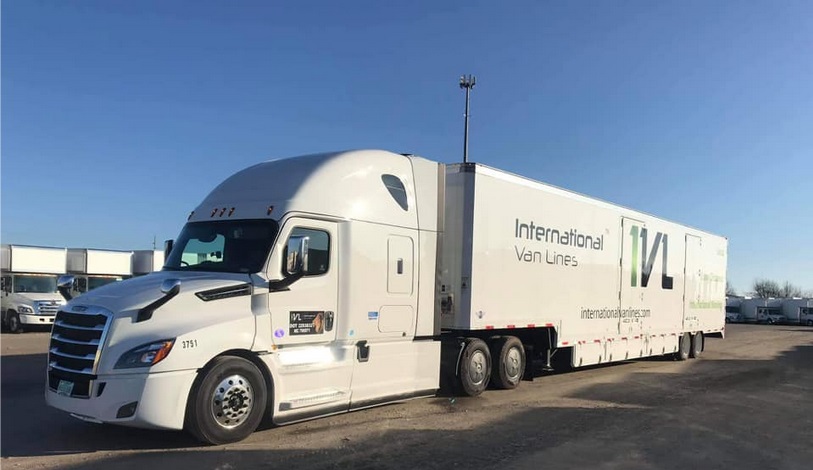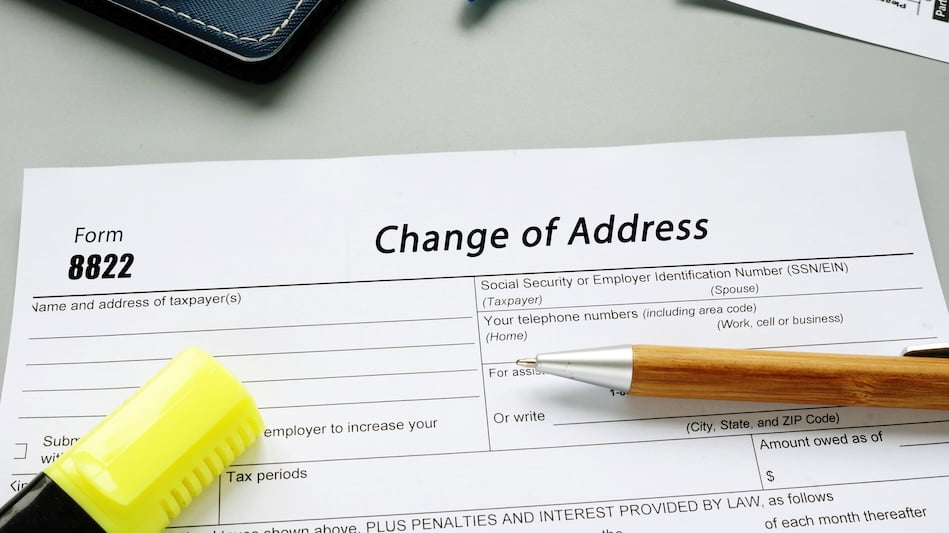- By admin
- February 4, 2025
- General Tips
Top 5 Moving Mistakes to Avoid:
How to Move Smarter not Harder

Moving can be one of the most exciting yet stressful life events. While there’s plenty of advice on how to move efficiently, it’s just as important to understand what not to do. Avoiding common moving mistakes can save you time, money, and headaches. Here are the top five mistakes people make when moving and actionable tips, backed by statistics, to ensure your experience is seamless.

1. Procrastinating on Packing

Why It’s a Mistake: Packing always takes longer than expected. When you delay, it can lead to rushed, disorganized packing that increases the risk of breakage or forgetting important items.
The Numbers: According to a 2023 study by SpareFoot, 65% of people underestimate the time it takes to pack their belongings, often leaving it until the final week. This results in damaged or forgotten items for over 30% of movers.
The Solution:
-
- Set a Packing Schedule: Break the task into smaller chunks. Start with off-season clothes, décor, and items you don’t use daily.
-
- Prioritize Essentials: Pack the things you’ll need immediately in a separate, clearly labeled box.
-
- Invest in Supplies: Don’t skimp on quality boxes, packing tape, and bubble wrap to ensure your items are safe.
Know More: 8 Packing Tips You will remember for life
Pro Tip: Pack one room at a time, and don’t move on until it’s fully completed to avoid mixing items. Many customers will also opt for full service moves where the movers will bring all the materials and boxes necessary to pack up the whole house.
2. Failing to Declutter Before Packing
 Why It’s a Mistake: Packing and moving unnecessary items not only wastes time but also increases moving costs. Plus, you’ll clutter up your new home before you even settle in.
Why It’s a Mistake: Packing and moving unnecessary items not only wastes time but also increases moving costs. Plus, you’ll clutter up your new home before you even settle in.
The Numbers: The American Moving & Storage Association reports that decluttering can reduce moving costs by 20-40% since movers charge by weight and volume. Additionally, 62% of movers regret not decluttering beforehand.
The Solution:
-
- Declutter in Categories: Use the KonMari approach by sorting items into categories like clothes, books, and kitchenware. Only keep what you use or truly value.
-
- Sell, Donate, or Recycle: Host a garage sale or use online platforms to sell valuable items. Donate gently used items to local charities or thrift stores.
-
- Set a Rule: If you haven’t used it in a year, it’s time to let it go.
Pro Tip: Decluttering early reduces stress and even offsets moving costs if you sell unwanted items.
Read Here: How to pack boxes for an overseas move
3. Not Hiring the Right Moving Company

Why It’s a Mistake: Hiring unreliable or unlicensed movers or brokers can lead to delays, damaged belongings, or even scams.
The Numbers: According to the Better Business Bureau, moving scams affected over 1,200 families in the U.S. in 2023, with victims losing an average of $1,200 per case.
The Solution:
-
- Verify Credentials: Ensure the company is a licensed and insured carrier. Use the FMCSA (Federal Motor Carrier Safety Administration) website to check credentials.
-
- Get Written Binding Estimates: Request quotes from at least three carriers. Avoid brokers and companies that do not offer in-person or video inspections before giving you a price.
Pro Tip: Always ask about hidden fees, like fuel charges, bulky fees or stair fees, to avoid surprises on your bill.
Read Here: 10 Time and space saving hacks.
4. Forgetting to Update Your Address and Utilities

Why It’s a Mistake: Overlooking this step can result in missed bills, delayed mail, and arriving at your new home without essential utilities.
The Numbers: A 2022 USPS report revealed that 40 million address changes are filed annually, but 27% of people still experience mail disruptions due to incomplete notifications.
The Solution:
-
- Notify Key Providers: Update your address with the post office, banks, insurance companies, subscription services, and your employer.
-
- Schedule Utility Transfers: Arrange for water, electricity, gas, and internet to be turned off at your old home and activated in your new one before moving day.
-
- Set Up Mail Forwarding: Use USPS to forward your mail temporarily while you update your address with each provider.
Pro Tip: Create a checklist of all the companies and services you need to notify to ensure nothing is forgotten.
Read Here: Is Self Packing for a move worth it?
5. Overloading Boxes and Skipping Safety

Why It’s a Mistake: Overpacking boxes can cause them to break or become too heavy, leading to injuries or damaged items. Similarly, rushing the process can result in accidents.
The Numbers: The Bureau of Labor Statistics reports that lifting injuries account for over 36% of all moving-related accidents, and overloaded boxes are a common cause of property damage during moves.
The Solution:
-
- Pack Strategically: Use small boxes for heavy items like books and large boxes for lighter items like linens. Distribute weight evenly to make boxes easier to carry.
-
- Label for Fragility: Clearly mark boxes with fragile items, and don’t stack them at the bottom of the moving truck.
-
- Plan for Safety: Wear sturdy shoes, clear pathways, and lift with your legs, not your back.
Pro Tip: If you’re unsure about lifting heavy items, hire professional movers to avoid injury.
Conclusion
Top 5 Moving Mistakes to Avoid – Conclusion
Avoiding these 5 common moving mistakes can make a significant difference in how smooth and stress free your move feels. By planning ahead, staying organized, and investing a little extra time in the process, you’ll set yourself up for success in your new home. Remember, the key to a successful move isn’t just what you do, it’s also what you avoid.
FAQ’s
1. Why is it important to avoid procrastinating on packing when moving?
Procrastinating on packing can lead to several problems, including rushed and disorganized packing, which increases the risk of items breaking or being forgotten. Studies show that a significant percentage of people underestimate the time needed for packing, resulting in damaged or forgotten items for a notable portion of movers. To avoid this, it’s recommended to set a packing schedule, prioritize essential items, and invest in quality packing supplies. Packing one room at a time and not moving on until it’s complete can also help maintain organization.
2. How can decluttering before a move save time and money?
Decluttering before a move is crucial because packing and moving unnecessary items wastes both time and money. Movers often charge by weight and volume, so reducing the amount of stuff can significantly cut moving costs, potentially by 20-40%. Additionally, a majority of movers express regret over not decluttering beforehand. To declutter effectively, sort items by category, sell or donate unwanted goods, and consider getting rid of anything not used in the past year. This proactive approach can even help offset moving costs.
3. What are the key considerations when hiring a moving company to avoid scams and ensure a smooth move?
Hiring the right moving company is vital to prevent delays, damaged belongings, and potential scams. In 2023, moving scams affected many families, with victims losing a substantial average amount per case. To avoid this, thoroughly research companies by checking online reviews on reputable platforms and asking for recommendations. Always verify that the company is a licensed and insured carrier using resources like the FMCSA website. It’s also essential to get written binding estimates from at least three carriers and to be wary of brokers or companies that don’t offer in-person or video inspections before providing a quote. Don’t forget to inquire about potential hidden fees like fuel or stair charges.
4. What are the consequences of forgetting to update your address and utilities, and how can these be prevented?
Forgetting to update your address and utilities can lead to missed bills, delayed mail, and arriving at your new home without essential services. Despite millions of address changes annually, a significant percentage of people still experience mail disruptions due to incomplete notifications. To prevent this, notify all key providers (post office, banks, insurance, employer, etc.) of your new address. Schedule utility transfers (water, electricity, gas, internet) to ensure they are turned off at your old home and activated at your new one before moving day. Setting up mail forwarding through the USPS is also a good temporary measure while you update individual providers. Creating a checklist of all companies to notify can help ensure nothing is missed.
5. Why is it important to avoid overloading boxes and prioritize safety during a move?
Overloading boxes can cause them to break, become too heavy, and lead to injuries or damaged items. Similarly, rushing the moving process can result in accidents. Lifting injuries are a common concern during moves, with overloaded boxes being a frequent cause of property damage. To ensure safety, pack strategically by using small boxes for heavy items and large boxes for lighter ones, distributing weight evenly. Clearly label fragile boxes and avoid stacking them at the bottom of a moving truck. When lifting, wear sturdy shoes, clear pathways, and lift with your legs, not your back. If unsure about lifting heavy items, it’s advisable to hire professional movers to prevent injury.
6. What proactive steps can be taken to ensure a seamless and stress-free moving experience?
To ensure a seamless and stress-free moving experience, it’s crucial to plan ahead and stay organized. Key proactive steps include: setting a detailed packing schedule to avoid last-minute rushing, thoroughly decluttering belongings to reduce moving costs and unnecessary items, carefully researching and vetting moving companies to avoid scams, and diligently updating your address and scheduling utility transfers. Additionally, it’s vital to pack strategically to prevent overloading boxes and prioritize safety during the lifting and loading process. These preventative measures can significantly contribute to a smoother transition into a new home.
7. How does effective decluttering before a move impact moving costs?
Effective decluttering before a move can significantly impact moving costs. Moving companies often base their charges on the weight and volume of items being transported. By decluttering, individuals can reduce the overall amount of belongings, which can lead to a substantial decrease in moving expenses, potentially saving 20-40%. This not only reduces the physical burden of the move but also offers a financial benefit by avoiding the cost of transporting unnecessary items to a new home.
8. What are some indicators that a moving company might be unreliable or unlicensed?
Several indicators suggest that a moving company might be unreliable or unlicensed, increasing the risk of delays, damaged belongings, or scams. These include a lack of verifiable online reviews on reputable platforms, an inability or unwillingness to provide proper credentials such as being a licensed and insured carrier (which can be checked via the FMCSA website), and a refusal to offer in-person or video inspections before giving a binding estimate. Companies that act as brokers without being actual carriers, or those that are not transparent about potential hidden fees (like fuel, bulky, or stair charges), should also raise red flags. The Better Business Bureau has reported numerous moving scams, emphasizing the importance of thorough vetting.



